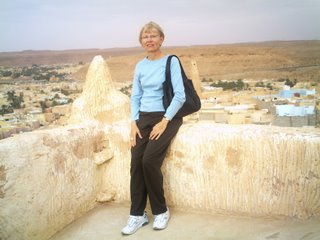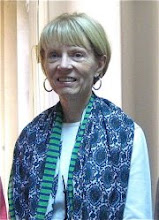Aïd El Fitr
 The Aïd El Fitr is a three-day feast, which marks the end of Ramadan. In Algeria, it began Tuesday, October 24, since the National Commission of Observation for the Lunar Crescent, meeting in the office of the Ministry for Religious Affairs and Foundations (Waqfs), did not see the new moon Monday night. The commission is made up of five sheikhs and a representative of the Center for Astronomical, Astrophysical, and Geophysical Research. This new moon also marks the beginning of the month of Shawwal 1447 and the start of the Muslim new year.
The Aïd El Fitr is a three-day feast, which marks the end of Ramadan. In Algeria, it began Tuesday, October 24, since the National Commission of Observation for the Lunar Crescent, meeting in the office of the Ministry for Religious Affairs and Foundations (Waqfs), did not see the new moon Monday night. The commission is made up of five sheikhs and a representative of the Center for Astronomical, Astrophysical, and Geophysical Research. This new moon also marks the beginning of the month of Shawwal 1447 and the start of the Muslim new year. Class Differences Overlooked in Gloss of Ramadan Solidarity
La Tribune, in an editorial, points out that, while Ramadan and the following Aïd are a great source of solidarity, always an important factor for a nation which fought over 130 years for its independence, Algeria shouldn’t overlook the fact that many are struggling to survive on limited salaries (pensioners, low income families, the young in underpaid jobs) and don’t have enough to assuage their hunger pangs. Retailers, nonetheless, whet one’s appetites by advertising cheap holiday clothes for children, reaching for whatever might be squeezed from an already overstretched budget. No one need die from hunger in Algeria due to state and individual beneficence; yet while some are lost in indecisiveness over which type of bread to buy, overindulging to the point of having to throw away extra food–with garbage cans overflowing, others must resort to rifling through rotted food piles and stealing a baguette at the front door of a boulangerie (bakery) to feed themselves or their families another day. Bonne fête quand même (Happy Holidays just the same)! the paper says (23 October 2006, p. 6).
Foreign Religious Preachers Want to Influence Algerian Mosques
Another interesting activity is that of the Ministry of Religious Affairs, which is moving to monitor the religious content offered by the 15,000 mosques in Algeria. This movement stems from the discovery of incendiary foreign tracts with fatwas (religious rulings), which do not contribute to proper religious instruction and inspiration, in five mosques in eastern Algiers. The Ministry did not say from which countries the fatwas originated. Seeking to avoid a return to the anarchy and terror of the 1990s, the Ministry will now seek to oversee library materials in mosques, standardize the calls to prayer, and forbid cutting, flagellation, and other fanatical practices in religious observance. The Ministry will also systematically oversee the importation of all works, CDs, and cassettes at ports, airports, and borders.
The tracts sought to incite violence in mosques with a previous history of fanaticism. The tract authors linked earthquakes of recent years to divine punishment for an impious people. To counter such thinking, a commission of religious and scientific figures presented the example of a CD, which suggested that the deformed, decomposed body of a dead person was due to a life lived outside the precepts of Islam. The commission issued its own fatwa, stating that such decomposition was scientifically impossible without the use of chemical products.
A ministry official says that a rapid response will be made to the discovery of any inappropriate materials (those not suitable to the religious mission) in mosques. Since the mosque is a public place, open to all, any judge, soldier, police officer, or citizen (the article didn’t mention that non-Muslims, however, are not allowed) can report what they consider improper activity. Eventually, all mosques must meet the same supervisory requirements as schools and have a director, who will be the ranking imam. Moreover, 22,000 agents, permanent, contractual, and volunteer presentlly have oversight over religious institutions. The goal is to have 75,000 permanent supervisors, so that each mosque will have five permanent administrative agents. At present, there is a deficit of 53,000 supervisors. When the Ministry arrives at the control of mosques at the everyday level and to run them as one would schools, then it will have solved its problems, it believes. Now, the situation is under control but not adequately regulated (Liberté, 23 October 2006, p. 2).
Americans concerned about fanatical teaching in mosques and madrassas (Islamic schools) will be glad that action is being taken to counter such activity. However, in Algeria this is being done with basically no concern for freedom of speech or religion, an example of how solving problems in one are may contribute to creating them in another.


0 Comments:
Post a Comment
<< Home